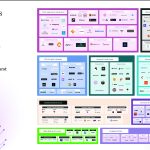
Nexus International, the gaming group founded by Gurhan Kiziloz, is pursuing a revenue target of $1.45 billion by the end of 2025, a figure that is shaping internal conversations but attracting little attention beyond the company’s own ranks.
Unlike some rivals that tie ambitious projections to quarterly investor updates or multi-stage funding cycles, Nexus’s approach is marked by a preference for quiet discipline. The group, which has already exceeded $400 million in gaming revenue, remains entirely self-financed. There is no record of outside equity or debt on its books. All expansion and operational expenditure continues to be underwritten by business earnings.
That model has shaped the company’s culture and approach to risk. Decisions on resource allocation and market entry are closely scrutinised for immediate impact on the bottom line. “If you set a target, you have to actually make decisions that move you closer to it. Otherwise, it’s just noise,” says Kiziloz. Weekly meetings are structured around this logic. Senior staff are expected to translate ambition into clear, practical actions, with less tolerance for speculative planning.
Recent history offers an illustration. Nexus’s entry into Brazil, a market that has drawn considerable attention from international gaming operators, began not with a headline-grabbing launch but with building a robust compliance structure and processes that resulted in the company securing a coveted national licence. Kiziloz describes this as “just the start”, plans are formulated with a view to quick validation, and adapted if real-world feedback is lacking.
The absence of external funding is not presented as a philosophy, but as a practical constraint that influences everything from campaign planning to staffing. The effect is a lean management structure. Department heads are given autonomy, but with it, responsibility for connecting their proposals to measurable revenue outcomes. Performance reviews tend to be brief, and underperforming projects are wound down with little fanfare. “You can’t lean on funding rounds to explain what didn’t work. You have to show the numbers or fix the problem,” Kiziloz says.
This discipline comes at a cost. There is little buffer for missteps, and setbacks are felt directly. “If something flops, you feel it immediately. That’s the price you pay for running on your own money,” Kiziloz observes. The company’s practice is to address recovery as part of routine business, rather than a special category of crisis management. Extended retrospection is rare, with the emphasis placed on prompt adjustments.
The $1.45 billion target itself is rarely invoked outside Nexus’s offices. It is not referenced in marketing materials or public filings, nor does it feature in presentations to business partners. Inside the company, however, it is treated as a practical benchmark. Departmental budgets, new hires, and product roadmaps are measured against their likely contribution to closing the gap. Proposals that cannot demonstrate relevance to the goal are typically set aside.
Growth is tracked on a monthly basis, with results circulated internally. Senior managers are expected to be candid about shortfalls and to propose corrective actions without delay. If a market, product, or channel underperforms, resources are redirected. The aim, according to those familiar with the company’s processes, is to maintain transparency and a degree of flexibility not always seen in organisations of similar size.
For now, the group’s revenue ambition remains just that, a target, not a forecast. There are few, if any, signs that Nexus intends to alter its funding model to accommodate more rapid expansion or to hedge against future risk. Kiziloz is pragmatic on the question of raising outside capital: “You never say never. But as long as the engine’s running, you keep pushing with what you’ve got.”
Whether the company will reach the $1.45 billion milestone on schedule remains open to question. The absence of external capital has helped to instil a culture of accountability, but it also heightens the effects of market volatility and competitive pressure. The company’s focus on operational discipline and measured adaptation, however, suggests that the target is valued more as a tool for internal alignment than for its promotional potential.
In an industry where growth stories are often told in headlines and roadshows, Nexus International stands apart for its low-key pursuit of scale. The outcome of that approach will become clearer as the deadline approaches, and as the group’s reliance on self-financing is put to the test. For now, the $1.45 billion question remains at the heart of Nexus’s internal agenda, quietly shaping its next moves.















